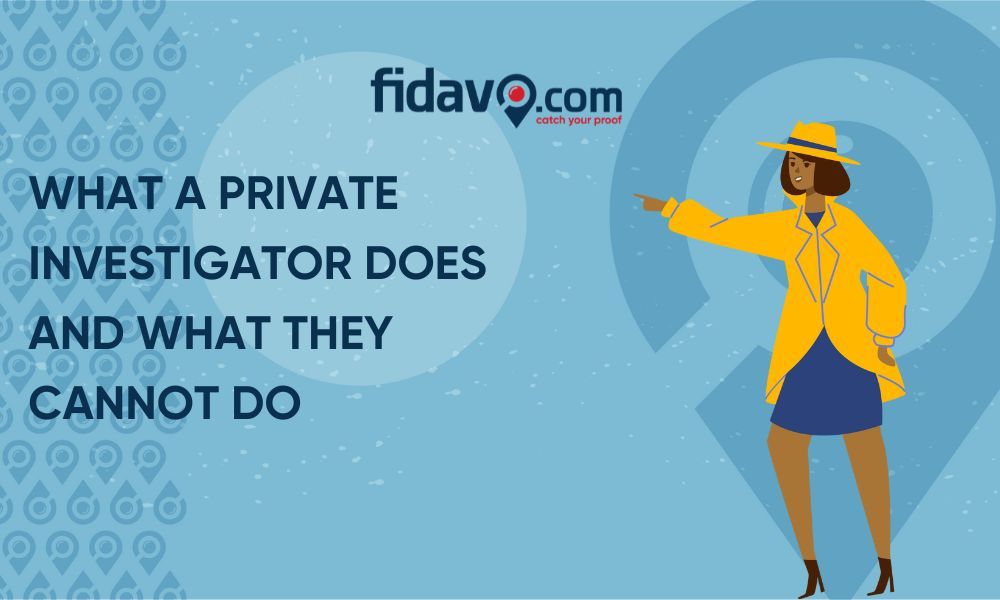What a private investigator does (and what they cannot do)

If you're wondering what a private investigator does, you're in the right place. The image portrayed in action movies and TV series is partially distorted and can be confusing. In the following lines, we will clarify the role of this professional figure, which is both mythologized and misunderstood by those who are not in the field.
What can a private investigator do?
Let's dispel a belief: the expert in question does not necessarily possess great martial arts skills, as they are not required for this position. Instead, they can be considered technical consultants in every respect, whose position is regulated by various laws.
In addition to privacy regulations, the most important source is Ministerial Decree 269 of December 1, 2010. It establishes the right and obligation to obtain a police license (authorization to initiate investigations) in order to practice the profession.
Currently, private investigators work not only for private individuals but also for businesses, both in civil and criminal contexts.
Here are the tasks that fall within their expertise:
- Collection of audio-video material
- Gathering information from public archives
- Providing testimonies for the cases handled
- Preparation of a report at the end of collaboration
- Surveillance in public and private areas
- Involvement of other individuals for collaborative purposes.
The aforementioned tasks must be carried out in accordance with legal provisions.
To give some examples, a private investigator can record conversations with the subject of investigation, even without their knowledge and in the presence of third parties, as long as the device is never left unattended. Furthermore, they have the authority to inspect privately owned areas, provided explicit consent is obtained from the owner.
What are the areas of expertise for a detective?
Nowadays, professionals in investigation work not only on uncovering extramarital relationships, monitoring the lifestyle of ex-spouses, or investigating new cohabitation arrangements for the purpose of reducing or canceling spousal support. They also work in many other sectors, especially for businesses, public administrations, and financial institutions.
Instances where the expertise of a detective is required include leaking of confidential information, workplace theft, financial stability checks on a company, fraudulent simulation of illness, and asset investigation for debt recovery, among others.
The same applies to cyberbullying, stalking, suspicion of child grooming or pedophilia, which are increasingly receiving attention from investigative agencies.
Limits of a private investigator
Private detectives have a duty to abide by the code of ethics, which includes maintaining professional confidentiality.
However, this is not the only limit they must respect. Other limitations include:
- They cannot conduct surveillance in private or condominium areas.
- They must avoid drawing attention while performing their duties.
- Access to protected and password-secured data or data without consent is prohibited.
- In agencies with multiple employees, it is not permissible to spy on them during working hours.
Regarding the last point, this constraint is logical because violating it would infringe on the privacy of third parties. However, it does not apply to moments outside of professional activities, when the investigator reverts to being a regular citizen like everyone else.
How to become a private investigator?
To enter this profession, one must pursue at least an undergraduate degree. An ideal candidate would have a bachelor's degree in legal disciplines or related fields such as criminology and investigative sciences.
Afterward, the aspiring professional must undergo a three-year apprenticeship at an authorized office with at least five years of proven field experience.
Additionally, they must complete an 80-hour training course and participate in periodic update seminars recognized by the region and the Ministry.
Possessing an academic degree, along with a clean criminal record and a strong moral character, allows individuals to apply for a Public Security License. To obtain it, they must submit an operational project indicating the services they intend to offer, the reference area (including a floor plan of the agency's premises), the pricing, and the technologies and methods to be used.
Once the license is issued, the investigator must register their business with the Chamber of Commerce and open a VAT number.
For companies, additional documentation is required, including the articles of incorporation, bylaws, and an authenticated copy of the minutes regarding the appointment of the members of the Board of Directors.
How much does a private investigator earn?
The economic return depends on the number and complexity of assignments, working hours, experience gained, and reputation among the public.
The earning potential ranges from €1,000 to €3,500 per month, with an average of €1,500-€2,000, but it can reach much higher figures. To increase opportunities for remuneration, it is advisable to gain experience, successfully close cases, and constantly invest in accredited training and updates.
 EN
EN  IT
IT 